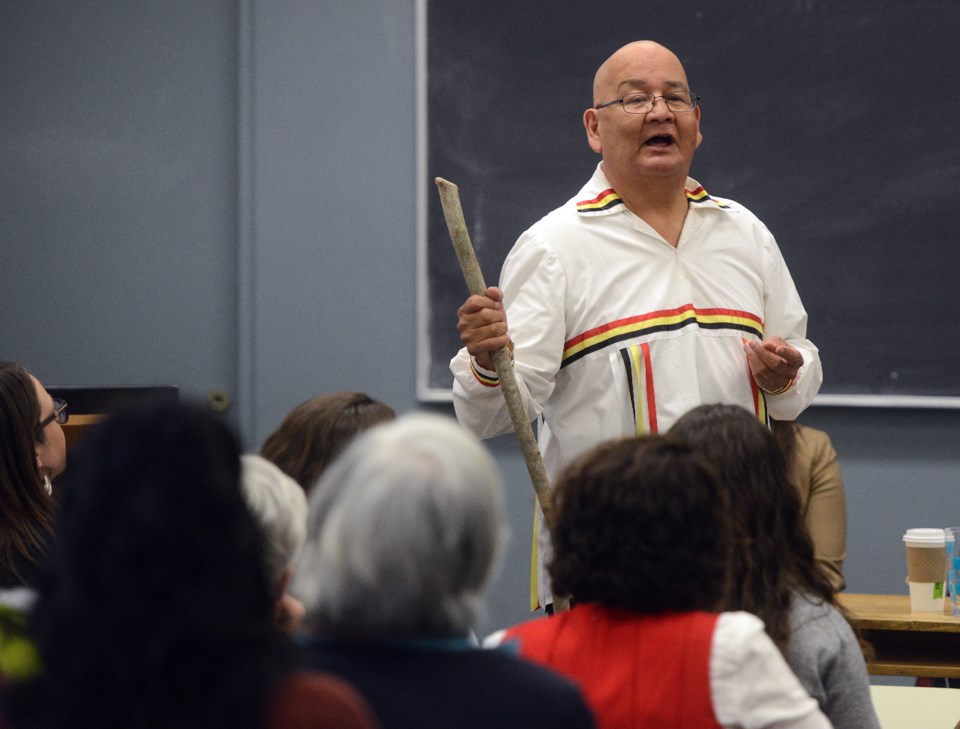Chippewas of Nawash First Nation elder Miptoon cut straight to the chase Monday when it came to truth and reconciliation with Aboriginal peoples of
"The biggest problem I see is that we study, study, study and there's no action," Miptoon told an audience of around 50 people at the University of Guelph Monday gathered to hear a panel discussion titled Reconciliation in Canada, One Year After The TRC (Truth and Reconciliation Committee) Report.
"We need to see something or it's just another document we will put on the shelf," Miptoon said, shelves that at his reserve that are filled with reports and studies from the government.
"I don't want to be studied anymore," he said.
Miptoon, who prefers the word "reconstruction" to "reconciliation," told the mostly-student audience that the truth has to be spread about what the residential schools did to Aboriginal cultures.
"Can the Truth and Reconciliation Committee give back what was taken from us?" he asked. "It has to really inform every one of us and get the message out."
A message, he said, that the churches denied for many years.
First Nations people will continue to fight for what is right, he said.
"Fighting for our identity and fighting for who we are. That's why we fight so much. We will always fight.
"We've been hearing promises for 150 years. If the government is sincere we should see things come to fruition in no time."
Miptoon was joined on the panel by political science professor David MacDonald and family relations and applied nutrition professor Kim Anderson, a First Nations woman.
Both MacDonald and Anderson said the TRC report, which contained 94 recommendations, has done some good, but has fallen short on major issues such as land rights and equality in education funding.
MacDonald said one of the failings of the reconciliation effort is that there is no money to pay for monitoring the implementation of recommendations.
"The recommendations are good, in a sense, going forward," MacDonald said. "But it's my understanding that there's huge gaps."
"What's missing is discussions around land and resources," she said. "Bigger discussions are missing."
She said it's fine to say "let's all be friends and move forward" but it goes much deeper than that. "We need to think about dramatically shifting some of the structural things."
Looking at "how we're going to be friends" is a "boiled down" version of reconciliation, Anderson said.
Miptoon said that people cannot understand First Nations people unless they walk with them.
"No politician has ever walked with me on my reservation," he said.
"We need to learn to trust the government again. Currently I don't have that trust until the government comes and walks with us. Feel what I feel. Only then can you understand.
"Let's walk in oneness."
